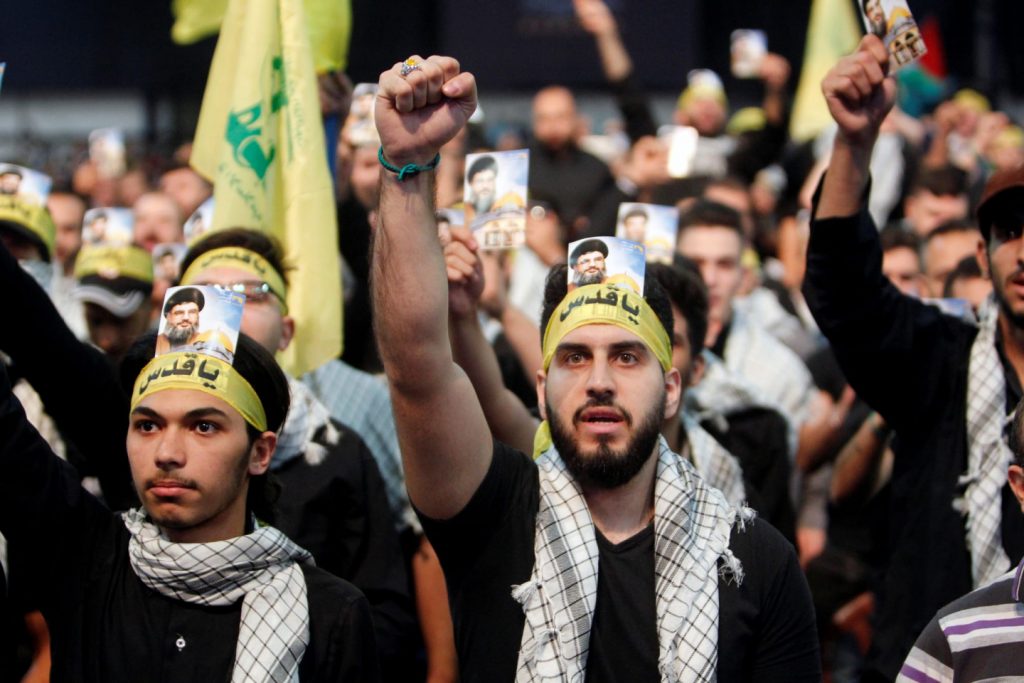IN THE MEDIA
Proscribing Hezbollah would serve two interests
August 2, 2019 | Colin Rubenstein

The Australian – 2 August 2019
US Secretary of State Mike Pompeo and Secretary of Defence Mark Esper are in Australia this weekend for talks with their southern counterparts: China and the Asia-Pacific will necessarily top their agenda.
But the annual Australia-US Ministerial Consultations are also likely to consider the US policy of maximum pressure on the Iranian regime, and America’s hopes for even greater Australian understanding and support for this.
To counter Iran’s increased aggression and persuade it to return to negotiations to improve the deeply flawed Iran nuclear deal, Australia should support US economic sanctions and diplomatic pressure, perhaps most effectively by working with the naval coalitions being assembled to protect freedom of navigation in the Persian Gulf.
But neither should Australia overlook the related issue of Iran’s sponsorship of global terror, especially through its major proxy group, Hezbollah. We would be serving our own vital interests, and correct a longstanding policy anomaly by moving to proscribe Hezbollah in its entirety.
The US, Canada, France, Israel and The Netherlands have all designated Hezbollah a terrorist organisation.
Last month, Argentina belatedly designated all of Hezbollah a terrorist organisation and ordered a freeze on the group’s assets.
And earlier this year Britain banned Hezbollah in its entirety after previously proscribing only its military wing.
By contrast, Australia has an even weaker policy of banning only Hezbollah’s External Security Organisation. A parliamentary committee recommended last year that we extend our proscription to all of Hezbollah’s military wing, but not even that would be adequate. Hezbollah itself admits such divisions are artificial it operates as one organisation, and its political and military “wings’’ are integral parts of the same terrorist body.
Hezbollah receives billions in funding from both Iran and the vast international criminal network it operates, with which it traffics drug and launders money, particularly across Europe and the Americas.
Recent arrests in Britain, Canada and the US demonstrate that Hezbollah has sleeper cells around the world. On July 22, London’s The Telegraph newspaper reported that British intelligence agencies “believe Iran has organised and funded sleeper terror cells across Europe including the UK and could greenlight attacks in response to a conflict in the Gulf”. This follows earlier revelations that a massive cache of explosives linked to Hezbollah had been discovered in London by security agencies in 2015.
Last month was the 25th anniversary of the infamous bombing of the Argentinian Jewish community centre a cowardly attack by the Iranian regime with assistance from Hezbollah that killed 85 people and wounded 300, and remains the deadliest anti-Semitic attack since World War II.
Hezbollah’s reach stretches deep into our neighbours in Southeast Asia. In 2014, a Hezbollah terror cell planning an attack on Israeli tourists was uncovered by Thai authorities.
Meanwhile, evidence unsealed after the May 16 conviction of Hezbollah operative Ali Kourani for planning terror attacks in the US shows Kourani had previously been active in China, attempting to procure ammonium nitrate for the production of explosives. A Hezbollah cache of ammonium nitrate was later discovered in Thailand in 2012.
In Australia, Hezbollah has been caught money laundering to help fund its terrorist infrastructure abroad.
For countries including Australia to protect themselves against Hezbollah’s vast terrorist and criminal activities, they need to follow the lead of their democratic allies and proscribe Hezbollah in its entirety.
Hezbollah is not an independent organisation; it is Iran’s most important international terrorist agent, trained, armed, paid for and commanded by Iranians.
Hezbollah hardly denies this. A Hezbollah commander recently conceded the group was ready “to initiate hostilities” against Israel, “if and when Tehran deems that necessary”.
The Argentine anniversary and what has come afterwards shows what happens when the crimes of the ideologically aggressive and expansionist Iranian regime are ignored and allowed to go unpunished.
The rogue regime that blew up a Jewish community centre halfway around the world and got away with it is today attacking foreign tankers in the Persian Gulf, breaching the nuclear deal, testing ballistic missiles and continuing to support numerous terrorist groups around the world, while seeking to destabilise and dominate its neighbours.
The commemoration of the Argentina atrocity is a reminder of how dangerous it would be to allow a regime capable of such an attack ever to obtain nuclear weapons.
It is in our national interest, given Australia’s reliance on a rules-based liberal international order and freedom of navigation, to contribute to US pressure on Iran. But first and foremost, to counter the ongoing terror threat posed by Hezbollah, we should act immediately and decisively to ban the group in all its forms.





